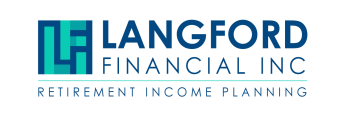Canadians say their #1 Financial Priority is Reducing Debt. Did you know that one of the best ways to do that is by getting a better interest rate on your existing debt? This helps you pay more to principle and less to interest thereby helping you pay off your debt sooner which, of course, you already know.
One of the factors that determines what rate you are offered on your next mortgage renewal is your credit score. If the bank sees you as a higher risk they will charge you a higher rate. So, how do you improve your credit score to create better options for borrowing?
Here are 5 Simple Tips To Keep Great Credit:
(1) The 80% Rule - Never owe more than 80% of the maximum allowable limit on your Credit Card. It is better to owe $8000 (80%) on a Visa with a $10,000 limit than it is to owe $4500 (90%) on a Visa with a $5000 limit. You may think that having the card with the smaller limit looks better for you but it doesn't. The closer you are to maxing out the worse the optics on your credit report. You may have thought it's wise to call and have your card limit reduced but that will actually work against you if you've spent more than 80% of the available limit.
(2) Pay on Time - Always, always, always make your payments on time. This is easier to do than ever by setting a reminder on your phone or any electronic calendar for 3-5 days before your payment is due. Then, make it a recurring appointment with a reminder that pops up every month. Online payments should be made 2 days before the due date to ensure they are recorded a received on time.
(3) Credit History Checks - You want to keep the number of inquiries into your credit history below 8 per year. Keep this in mind the next time you're at a sporting event and get offered a free t-shirt or hat if you apply for their credit card, and take a pass. This could prevent your next house purchase.
Credit Report: a record of someone’s payment history and debt load provided by a credit bureau. You can order a copy of your credit report by contacting the credit bureau (we recommend Equifax, cost: $20). You should review your credit report regularly to ensure there are no mistakes. (Source: manulife.ca)
Credit Score: a numerical rating ranging from 300 to 900 that represents a person’s creditworthiness. The rating is provided by a credit bureau and is determined by that person’s payment history and debt load. When you apply for any type of loan or credit, lenders will use your credit score as a basis for determining whether or not they will extend that credit to you. (Source: manulife.ca)
(4) History - Keep that credit card you've had for a long time. It's better to do that than to keep signing up for new ones and cancelling the old ones. There's more than one key word in the concept of developing a Good Credit History. Showing you've been a good steward of your available credit over the long term is also very valuable in establishing yourself as able to handle more. You want to show you've been making your payments on time for a long time.
(5) Total Debt - Keep your total debt below 3 times your gross annual household income. Any more than that and you are in over your head in debt.
Our business is all about helping clients declutter their lives by first getting their total financial house in order and providing the clarity and confidence to start enjoying their retirement lifestyle.
You can learn more about our flat-fee planning process by clicking here.
Fee-only Retirement Income, Investment, & Tax Planning
Willis J Langford BA, MA, CFP
Nancy Langford CRS
"Helping you maximize your income and enjoy a worry-free retirement"







